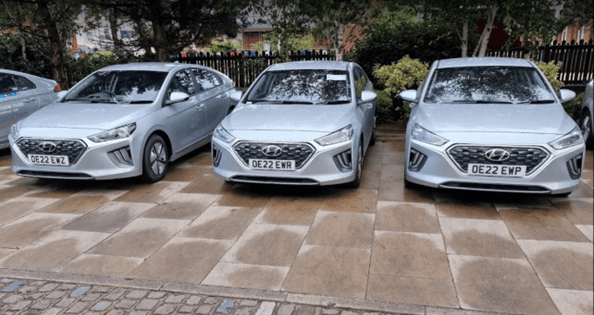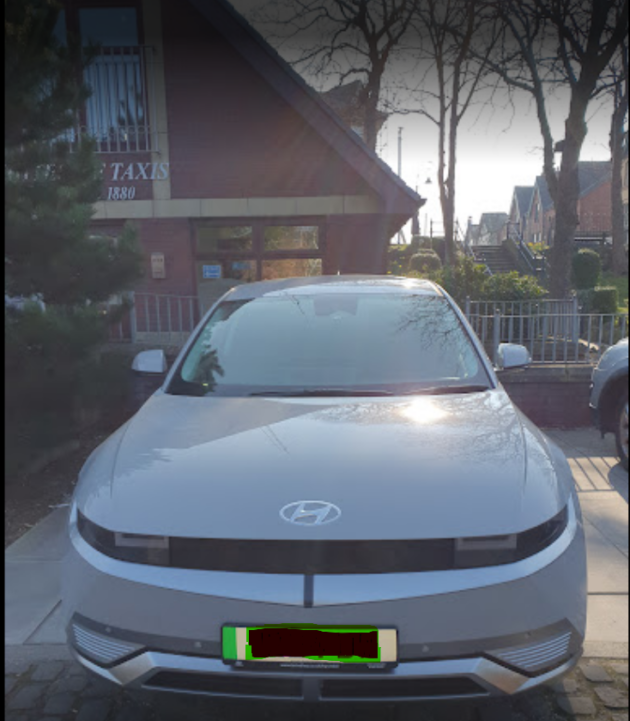From horses and carts to a fleet of EV taxis

One of England’s oldest taxi businesses is steering its way towards an all-electric fleet of taxis.
Whiteside Taxis in St Annes on Sea started with Handsome Cabs in 1880 and has seen many changes in the years that followed.
But, as with the transition from Handsome Cabs to the Hackney and private-hire taxis we are familiar with today, it did not happen overnight.
Based in St Annes On Sea, Whiteside has a fleet of 94 cars, 69 of which are owned by the taxi firm and the other 25 are owned by taxi drivers.
Whiteside’s fleet includes 40+ hybrids and EVs and as it begins its journey to greener taxis, it has just cancelled orders for hybrids – which are hugely popular among taxi drivers – in favour of fully electric vehicles.
Whiteside manager Stuart Miller said: “We will be going down the full EV route, but it can’t happen overnight. They are more expensive initially and the infrastructure isn’t in place yet to fully run a taxi service, especially the airport transfer side of the business when there is so much range anxiety about long-distance journeys with four passengers and their luggage.
“Taxi drivers have been encouraged to use greener vehicles and for years many have gone with hybrids but now we are being told those are being banned as well. We have just got a new hybrid this week which we will have to get use out of for four to five years before it is replaced and we have just cancelled orders for more hybrids while we plan to go fully EV. You can’t just get rid of something you have paid a lot of money for.

Loniq 5 full EV
“The drivers who own their own taxis face the same problem – many of them are still paying for their current diesel cars and now they are being told to get rid of them and buy something that’s even more expensive but won’t get them as far.
“We know the future is going to be full EV, but there are still obstacles in the way. Having more fast-charging points will get us about half-way there, but it’s going to be about 10 years until our fleet is fully electric.”
While switching to EVs means Whiteside’s fleet will be exempt from congestion and clean air zone charges, an EV bought today would not be able to offer the same service as a current petrol or diesel taxi.
Stuart said: “You would have to think very carefully about long-distance fares and airport transfers. Range anxiety is a big obstacle to EVs at the moment and it is real.”
Whitesides is paving the way for its EV fleet by installing chargers at the base but for Stuart, there needs to be more charging points available to drivers while they are out on the road.
He said: “Passengers ultimately don’t care what car you take them in, as long as they can get from A to B on time, safely in a vehicle that is clean and well maintained. What you can’t do is stop every few trips and spend time recharging and the taxi drivers can’t keep coming back to the base to fully charge.
“They need to be able to charge at times and places that suit them. They would need to be able to charge for 10 to 20 minutes while they are at a taxi rank waiting to pick up a fare at a station or in a town centre.
“We have come a long way from 1880 with horses and carts and we have seen plenty of changes over the years. This is something we will be doing and our fleet will be fully EV to reduce carbon emissions but it will take time.”






